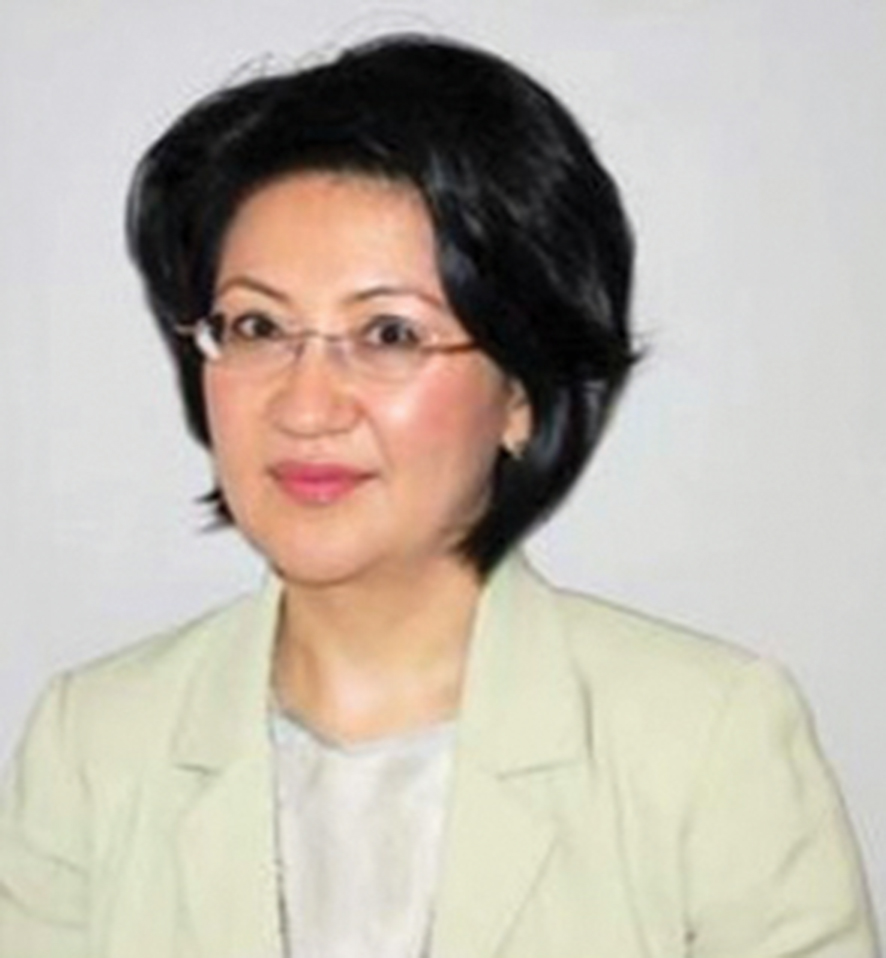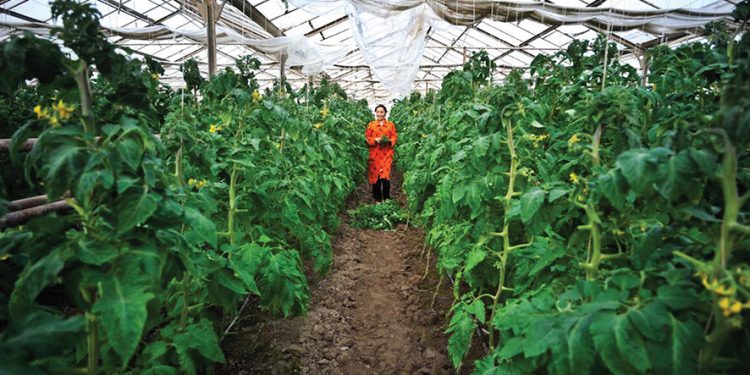Central Asia and the Caucasus are facing several intertwined challenges including climate change impacts, food insecurity, and the economic effects of geopolitical conflicts.
ADB Director for Regional Cooperation in Central and West Asia Lyaziza Sabyrova explains how regional cooperation can address these challenges, and how ADB supports the region through the Central Asia Regional Economic Cooperation (CAREC) Program.
CAREC is a partnership of countries and development partners working together to promote sustainable development through cooperation. As one of the development partners supporting CAREC, ADB hosts the CAREC Secretariat and helps to facilitate projects that deliver regional benefits.

What are the major issues facing Central Asia and the Caucasus today?
There are several intertwined challenges mainly caused by the impacts of geopolitical conflicts and climate change.
The Russian invasion of Ukraine disrupted supply chains last year and drove up inflation, which remains high in some countries. While the relocation of many Russians to Central Asia and the Caucasus boosted consumption and business activity, windfall gains may be temporary and long-term challenges are emerging. This reinforces the need for countries to diversify trade routes and their economic ties. Doing so would be better for economic growth and food security in the long run.
Meanwhile, climate change is causing more extreme weather events that are threatening lives and livelihoods, as we have seen in last year’s devastating floods in Pakistan. Harsher weather conditions are affecting agricultural yields and putting food security at risk. Climate change is also compelling the region to transition to clean energy, which is particularly challenging for certain countries that rely heavily on fossil fuels for both exports and energy.
Many of these issues can be addressed through regional cooperation and integration. They’ll be discussed at the CAREC session, Reinvigorating Regional Cooperation in Central and West Asia, at the ADB’s 56th Annual Meeting in May.
How can regional cooperation help to address food insecurity in Central Asia?
Central Asia and the Caucasus are well known for their delicious and nutritious agricultural products. Countries in the region should work to increase trade in these products to help ensure that there is enough food available at reasonable prices. Modernizing and harmonizing food quality standards and border crossing procedures within the region will make it faster and easier to transport goods from one country to another.
One approach is to tackle both the quantity of produce (for example, easing the seasonality effect) through logistics and marketing operations, and the quality and safety standards of produce by supporting their advance certification for export markets. These have been applied in some countries including Armenia, Georgia, and Uzbekistan for high-value horticultural products such as apples, pomegranates, and cherries, among others.
Regional cooperation can also help drive sustainable food production in the long term. It’s important that Central Asian countries coordinate to manage their shared water resources, such as the Amu Darya and Syr Darya rivers, to ensure there’s enough water for irrigation. Countries can also share knowledge on modern, climate-resilient technologies and practices to maximize agricultural productivity.
CAREC is a fantastic platform for countries to come together to address common challenges like food insecurity. Last November, ministers from member countries endorsed a cooperation framework that sets out how they can collaborate on agricultural development and food security.
How can people and goods move faster across the region?
There are several landlocked countries in the region including one of the world’s only two double-landlocked countries – Uzbekistan – so it’s crucial to build efficient land transport networks. Since 2001, more than $30 billion has been invested in CAREC-related transport projects. These projects have resulted in around 10,000 kilometers of newly built or improved roads, and more than 5,400 kilometers of newly built or improved railways.
Prior to COVID-19, moving cargo via road was becoming cheaper and sending goods via the region’s railways was becoming faster. But progress stalled after the onset of the pandemic when countries tightened border crossing procedures to contain the spread of the virus.
CAREC uses data from real-time road and rail cargo shipments to track the efficiency of moving goods along six CAREC transport corridors that crisscross the region, linking country members. And we are seeing that the situation is normalizing and the CAREC Program continues to support the improvement of transport networks as well as the simplification, harmonization, and digitalization of border crossing procedures.
We need to ensure the transitions between road, rail, maritime, and air transport are as seamless as possible, to encourage trade and tourism and maximize the region’s position as the gateway between Europe and the rest of Asia.
How can regional cooperation help make electricity in the region more reliable?
The region contains rich reserves of energy, but they are unevenly distributed. Kazakhstan, Turkmenistan, and Uzbekistan are rich in fossil fuels for example, while the Kyrgyz Republic and Tajikistan have extensive hydropower. Yet in winter, the hydro-rich countries suffer from power shortages due reduced water flow and higher demand for heating.
The solution is for these countries to trade energy, which implies improving the physical interconnections between countries and better collaboration between grid operators. An ADB study found that if seven countries in the region shared back-up capacity reserves as they ramp up renewable energy investments, they could save up to $230 million per year.
CAREC supports projects and reforms that will help make electricity in the region more reliable. Almost $9 billion has been invested in CAREC-related energy projects since 2001. These projects have increased energy generation capacity by more than 130,000 megawatts and installed or upgraded more than 640,000 km of electricity transmission lines.
Can CAREC also help to reduce the region’s carbon emissions?
Absolutely. The CAREC Green Energy Alliance, the first targeted financing vehicle supporting renewable energy and energy efficiency in the region, aims to provide access to investment-ready projects and match financiers with project developers.
We urgently need clean energy investments in the CAREC region because it is home to some of the world’s most energy-intensive economies. Energy efficiency is low because of aging infrastructure, low energy pricing, and regulatory gaps. Installed solar and wind capacity currently amounts to around 5% of total capacity despite the region’s abundant renewable energy potential.
The CAREC region (excluding the People’s Republic of China) needs around $340 billion in energy investments by 2030 to enable green growth, but current investments are only about a quarter of this and most are from the public sector. Regional cooperation can help to ramp up public and private investments in renewable energy generation and energy efficiency – which can help to meet the region’s growing energy needs, accelerate the low-carbon transition, and achieve climate goals.














